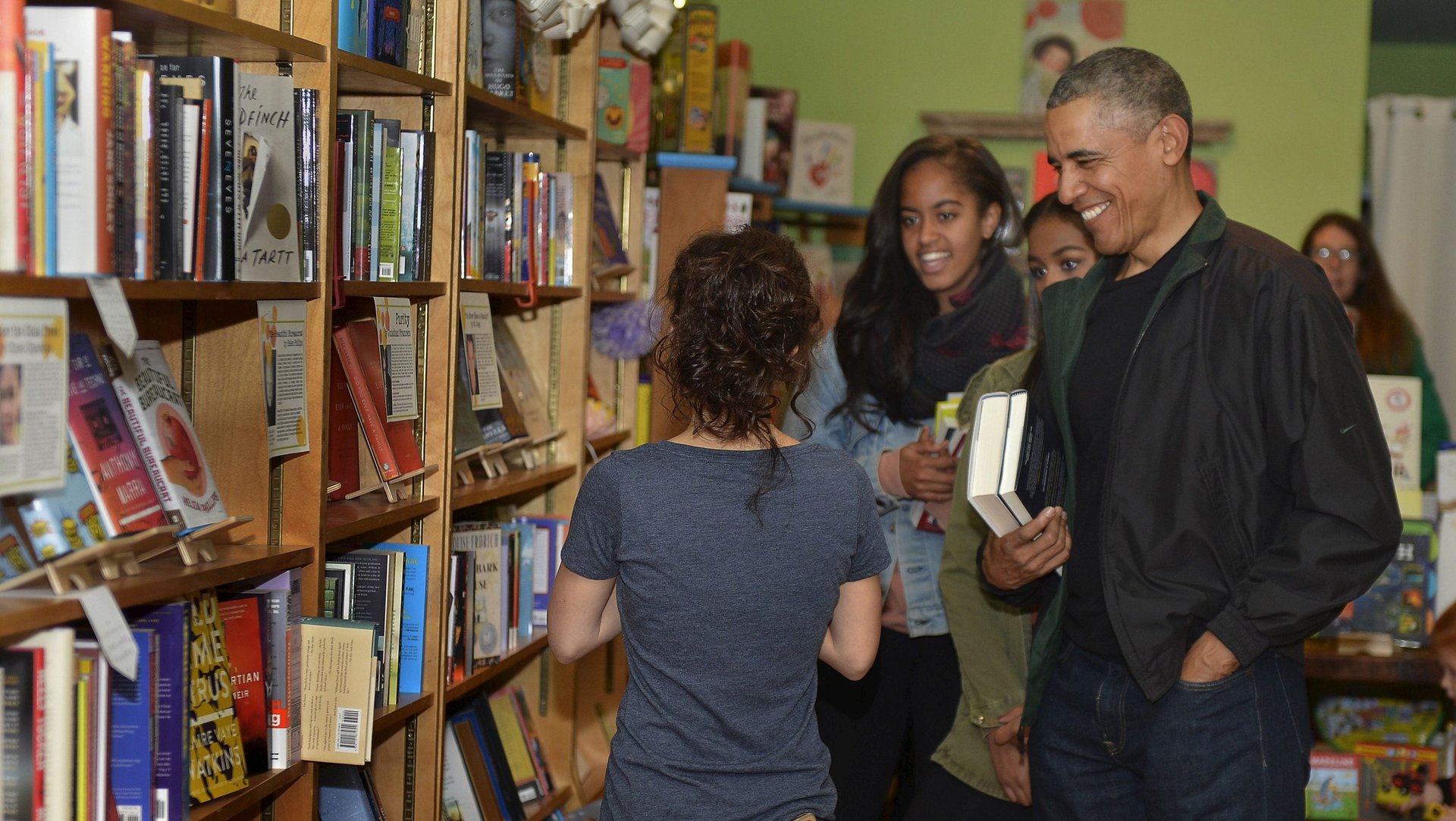Barack Obama’s recommended reading list on inequality and identity
Hundreds of children arriving illegally at the US border have been separated from their families and placed in detention centers. Former US first lady Laura Bush wrote an op-ed condemning the zero-tolerance policy, but people on Twitter are wondering where other former US presidents are, and why they haven’t spoken publicly about the shelters.


Hundreds of children arriving illegally at the US border have been separated from their families and placed in detention centers. Former US first lady Laura Bush wrote an op-ed condemning the zero-tolerance policy, but people on Twitter are wondering where other former US presidents are, and why they haven’t spoken publicly about the shelters.
Barack Obama, for one, has been relatively quiet on social media of late, except to congratulate the hockey team the Washington Capitals for winning the Stanley Cup and to mourn the death of travel-show host Anthony Bourdain—and to let his former constituents know that he’s reading.
In a Facebook post published on Saturday, Obama recommended some of the nonfiction he’s read recently, focused on government, inequality, and history, with one book that addresses immigration. Together the recommendations are an intellectual antidote to the current US president, who eschews reading. Here are the works featured on Obama’s list:
Futureface: A Family Mystery, an Epic Quest, and the Secret to Belonging, by Alex Wagner (2018)
Journalist Alex Wagner investigates a potential new twist in her family’s history. “What she came up with,” Obama writes, “is a thoughtful, beautiful meditation on what makes us who we are—the search for harmony between our own individual identities and the values and ideals that bind us together as Americans.”
The New Geography of Jobs, by Enrico Moretti (2012)
Economist Enrico Moretti argues that there are three Americas: brain-hub cities like Austin and Boston; cities once dominated by traditional manufacturing; and the cities in between. “Still a timely and smart discussion of how different cities and regions have made a changing economy work for them,” writes Obama, “and how policymakers can learn from that to lift the circumstances of working Americans everywhere.”
Why Liberalism Failed, by Patrick J. Deneen (2018)
Political scientist Patrick J. Deneen argues that liberalism is not the result of the natural state of politics and lays out the ideology’s inherent contradictions. “In a time of growing inequality, accelerating change, and increasing disillusionment with the liberal democratic order we’ve known for the past few centuries,” says the former president, “I found this book thought-provoking.”
“The 9.9 Percent Is the New American Aristocracy,” by Matthew Stewart (June 2018)
In The Atlantic, Matthew Stewart, author of The Management Myth, defines a “cognitive elite,” a “9.9%” of Americans who value meritocracy and, he argues, are complicit in the erosion of democracy. “Another thought-provoking analysis, this one about how economic inequality in America isn’t just growing, but self-reinforcing,” says Obama.
In the Shadow of Statues: A White Southerner Confronts History, by Mitch Landrieu (2018)
Mitch Landrieu, the former mayor of New Orleans, Louisiana, writes in his memoir of the personal history and reckoning with race that led him to take down four Confederate statues in 2017. “It’s an ultimately optimistic take from someone who believes the South will rise again not by reasserting the past, but by transcending it,” writes Obama.
“Truth Decay: An Initial Exploration of the Diminishing Role of Facts and Analysis in American Public Life,” by Jennifer Kavanagh and Michael D. Rich, RAND Corporation (2018)
This report for the nonprofit RAND Corporation, available as a free ebook, attempts to study the erosion of fact-based policy making and discourse in the US. “A look at how a selective sorting of facts and evidence isn’t just dishonest, but self-defeating,” says Obama.